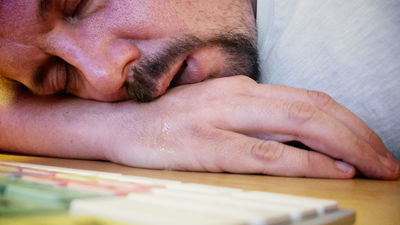5 tips psychologists show to reduce stress and prevent burnout

Excessive stress persists and leads to daily life, due to feelings of labour without sufficient results despite hard work, or collapse after reaching a major goal A
Reduce stress at work and prevent burnout – a psychologist explains how
https://theconversation.com/reduce-stress-at-work-and-prevent-burnout-a-psychologist-explains-how-129841
In recent years, in spite of the fact that the office, does not increase productivity by deterioration of the mental and physical state ' presentation tee rhythm is becoming' is also an issue in the world of business, the 2004 research productivity of the individual by the presentation tee rhythm in three It is reported to be reduced by more than a factor. And burnout syndrome is said to be a disease that is particularly prone to presentism.
Tottle says that it is important to be aware of the following five tips to reduce the likelihood of burnout.
◆ 1: Prioritize what you want to do
'Please write down what you want to accomplish throughout the year, including job changes, promotions, and non-work, as much as possible,' said Tottor. Determining what you need can help you understand what you need to change for it.
◆ 2: Set monthly goals
Once you have set up what you want to do, set monthly goals to find the pace of work that works for you. Achieving small goals in small increments increases dopamine, which leads to a greater sense of accomplishment and motivation, says Tottle.

◆ 3: sleep well
Improving sleep hygiene by prioritizing rest increases immunity. In particular, it has been
◆ 4: Exercise
Tottle says that if you have a task that tends to leave you sitting in a chair all day at desk work, you should go out and exercise more. Exercise can be as simple as taking a walk during the lunch break, giving you the positivity to accomplish more challenging tasks and helping you work smoothly in the afternoon.
◆ 5: Support people around you
In 2015, actions such as supporting people's work and giving positive feedback to colleagues helped reduce their own stress levels and the effects of stress on mental health. in research we found we are. 'Reducing workplace stress and its impact on you is important both physically and mentally, and it's the responsibility of everyone in the workplace,' said Tottle.

Tottle points out that burnout is not just a problem for company employees, but one that organizations should be actively addressing. For example, if a boss acts, it is said that subordinates also tend to mimic that behavior.If a boss actively takes a lunch break, strolls during a break, or leaves the office at an appropriate time, Mr Tottor said that it could be a good example for the team and improve the working environment and presentism.
Related Posts:
in Note, Posted by log1i_yk







